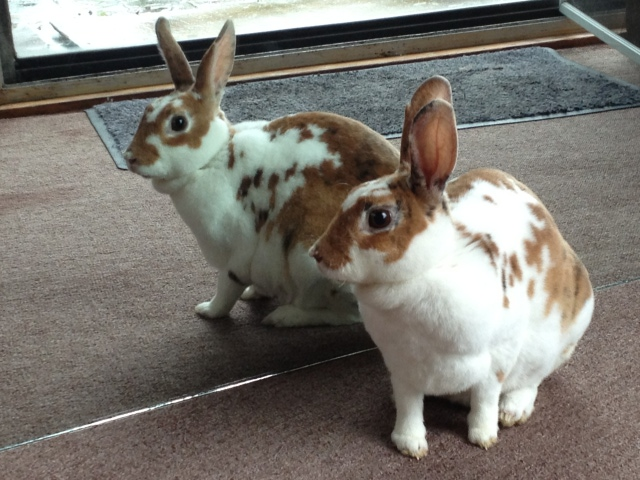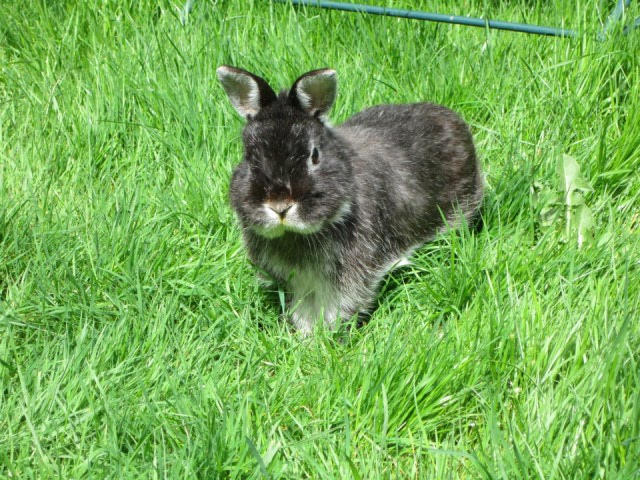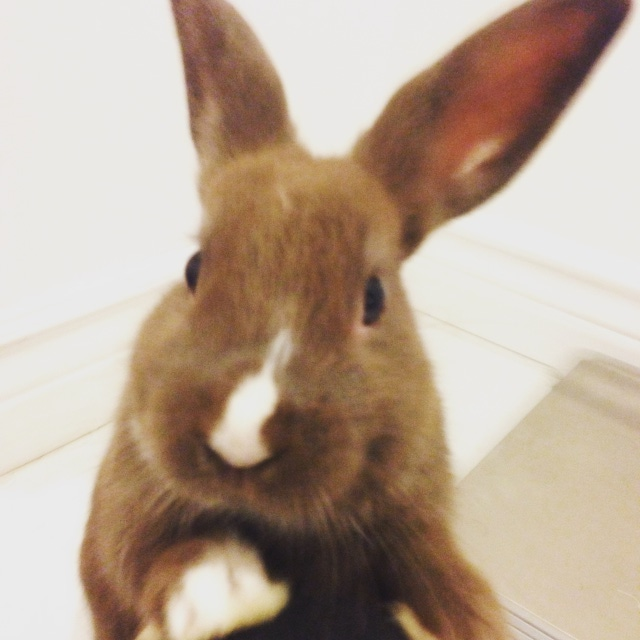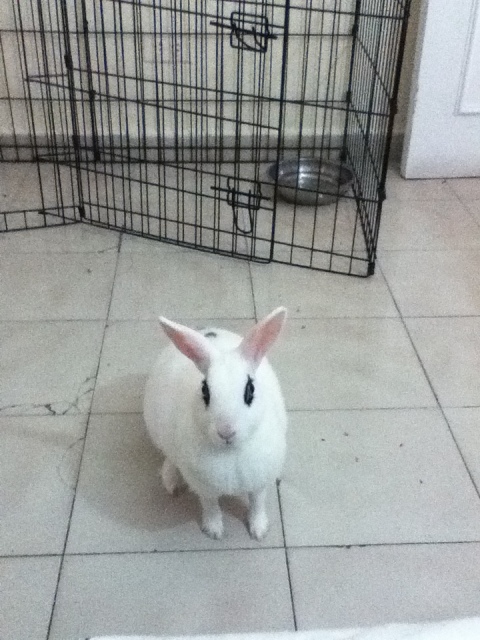QuestionHi,
Recently, I have lost 2 much loved rabbits.
One was a very healthy white female, dwarf lop, only 6 months old. I checked on her late in the evening because it was raining to make sure she was dry, and she was perfectly fine. The very next morning, she had lied down and died, just as though she had gone to sleep. There was no bleeding or any sign of swelling, redness or bites.
This morning, the exact same thing happened to a brown male lop. We rescued him, and he had a wonderful temperament. Never have we had such a friendly male. He was fine and running around yesterday, and this morning he was found dead in the same way as the female. I'm begining to fear for my other rabbits.
I read that someone else had a question like this. They do eat plenty of hay, pellets, fresh grass and vegetables. They run around permanently, and are only kept in cages when notably ill.
In the past year, we've had myxomatosis and snuffles affect our rabbits. Antibiotics saved one of my rabbits, and he is very healthy amd fit. But I don't think those were the causes of death for the two rabbits that I've lost recently.
My question is, what insects/pathogens/diseases can be present outdoors that can cause this, that we may be able to remove? May bird lice be a contributing factor? Are there any notable signs of stress that I can look out for in my other rabbits? Or any other unusual signs that may suggest they are unwell even though they may be running around like they are healthy?
Its just unusual because I have had rabbits my entire life, even before I was born. That's more than 20 years of having rabbits. We only had one case of myxomatosis many years ago, and every other rabbit died of old age. I've had rabbits live to be 10 years old, and my last oldest ones were two sisters of seven years-one died of myxamotosis, the other of snuffles. Since then, we've had so many deaths I just don't understand why. I just would like to learn anything that can help prevent further deaths.
Thank you,
Melissa
AnswerHi,
I am very sorry to hear about your rabbits' passing.
Unfortunately you are living in a country that decided to unleash myxomatosis against the rabbit population there and it's something that is in your outside environment. Not saying it's always a danger or present, but it is there and it's not like you can tell it's around until you see signs of infection.
However as you do not see signs of it killing your two rabbits, it's unlikely that's it. I know you are in winter now as we are in summer here, and one thing I can tell you is that change of seasons and drinking enough (dehydration) is a very real and serious issue for all rabbits in general, and some particular rabbits specifically. some just don't drink enough and get into real trouble very quickly, being small animals they don't have very far to go to get dehydrated. And as you know with their gi tract they need a lot of water to keep it working right. They can be normal all day, having problems overnight and be dead the next morning, dehydration can kill that fast. They wind up going into shock and passing. Perhaps the only good thing if there is a good thing about this is that going into shock is probably the most least unpleasant way to die as it's like falling asleep.
The other thing you may consider is examining them for bite marks from spiders or snakes outside. I know you guys have a lot of poisonous critters living outside and you may have something living around your area taking down your rabbits.
One you mention was about six months old. If you saw she had any mucuosy stools she had passed before dying, she probably had enteritis from a Clostridia (bacterial) infection. This can be picked up by other rabbits. A drug called Questran is the treatment of choice if this appears to be what she had, a vet would need to confirm it. If this would be what they had make sure to give them generous amounts of water as it can dehydrate them.
So basically changes in the weather/seasons, where it gets drier and they don't drink more, just being outside puts them more at risk (as your past experiences show), and

 Mini Rex Colours
QuestionQUESTION: I have a few questions that I have be
Mini Rex Colours
QuestionQUESTION: I have a few questions that I have be
 rabbit help.
QuestionSnowball, the rabbit.
QUESTION: We gave
rabbit help.
QuestionSnowball, the rabbit.
QUESTION: We gave
 Rabbit with startling reaction to petting
Question
Bunny
I have a twelve year old male dwa
Rabbit with startling reaction to petting
Question
Bunny
I have a twelve year old male dwa
 Bunny Leg Sprained or Fractured?
Question
Mocha
My just over 2 month old bunny wa
Bunny Leg Sprained or Fractured?
Question
Mocha
My just over 2 month old bunny wa
 GI Statis ?
Question
COOKIE
Female/age 3yrs/house rabbit/open cage
GI Statis ?
Question
COOKIE
Female/age 3yrs/house rabbit/open cage